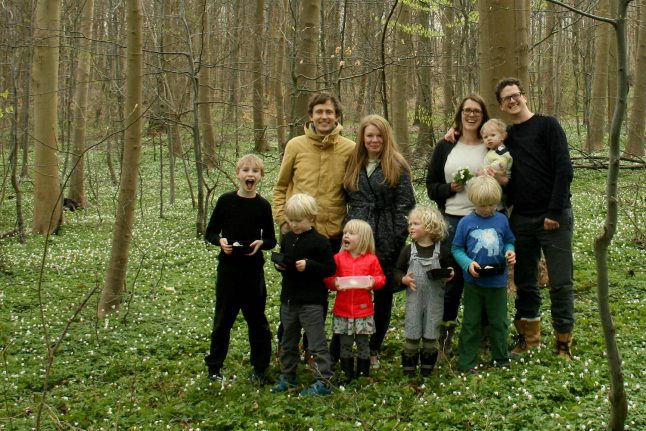Eve still works full time at his day job, also in archaeology. But the sweet-toothed entrepreneur told The Local that Denmark provided him with inspiration to try something out of his comfort zone – starting his own business in a foreign country.
After meeting business partner Anders Ørbæk at the daycare centre attended by their children, the two began the project, initially producing the chocolate out of their own kitchens.
“That has now moved to the renting of a professional space, so that we can scale up production and also get all the relevant food hygiene certificates and so on,” Eve said.
The archaeologist said having Danish partners had been beneficial in the course of setting up a business in the Scandinavian country, even though the process itself was straightforward.
“Actually starting the business was a matter of filling in a few forms online and showing we had 100 kroner [13 euros] in the bank. However, I think without our Danish partners, it would have been quite hard – mainly because of the technical Danish required. My Danish is pretty awful – and there are a lot of financial terms that are difficult to translate,” Eve said.
READ ALSO: Danish: Is it really so hard to learn?
“So I think for us it was essential to have Danish partners. Also, the food hygiene rules and health and safety, while similar to the UK, are quite onerous – and again very technical.
“I run my own archaeology business in the UK, so that has set me in great stead for the financial and business side,” he added.
The startup currently sources some of its supplies from Eve’s native UK – one aspect that may be complicated by Brexit, he said.
“My secret dream is that the chocolate business will enable us to beat Brexit and stay in Denmark for a lot longer — but we'll have to see how it pans out,” he said.
It was not just the administrative side that Eve had to learn on the hoof for his Danish-based business, though – the process of producing the chocolate itself is also new.
“I was eating some Ritter Sport one evening and wondered to myself how chocolate was made, thinking it must be some incredibly complicated industrial process. So I checked out a few YouTube videos and it turns out you can make chocolate in a coffee grinder – it tastes awful because it is so crunchy, but it shows the process. From there it was a matter of buying a bigger grinder and starting to experiment. We have so much to learn still, but people seem to like what we are producing so far,” he said.
The chocolate produced by the startup – which is both fairtrade and organic – is heavily influenced by Denmark’s nature and seasonal variations, including a quarterly subscription service which can be signed up for via a crowdfunding campaign.
“We have been trying to find a way to really represent the beauty and abundance of the Danish countryside and combine it with something that Danes really love – chocolate,” he said.
“Strawberries from Samsø for summer, hazelnuts foraged from the woods for autumn, etc. Between us we have six kids so the family always come in and help during the production days,” he added.
A longer term aim is to consolidate the new company – named Ørbæk & Eve after its co-founders – as a well-known ‘bean to bar’ company in Aarhus.
“Our main reasons for doing this are two-fold. First, we eat a lot of chocolate and have become increasingly concerned by the human and environmental costs of industrialised chocolate production – there are new reports about destruction of rainforest for cocoa plantations and slave labour in West Africa, for example. In order to not be complicit with this, I wanted to figure out how it was made – and to do it myself.
“Second, we have really noticed the differences in the seasons since we moved to Denmark, so we wanted to make chocolate that reflected and celebrated the different qualities of the changing seasons,” he said.
Eve, Ørbæk and their partners are currently spending evenings and weekends on the chocolate production runs.
“As things pick up, I suspect I will move to one dedicated day a week, but we have four of us working on it, so we can usually juggle the time,” he said.
READ MORE: The Local's 'My Danish Career' series



 Please whitelist us to continue reading.
Please whitelist us to continue reading.